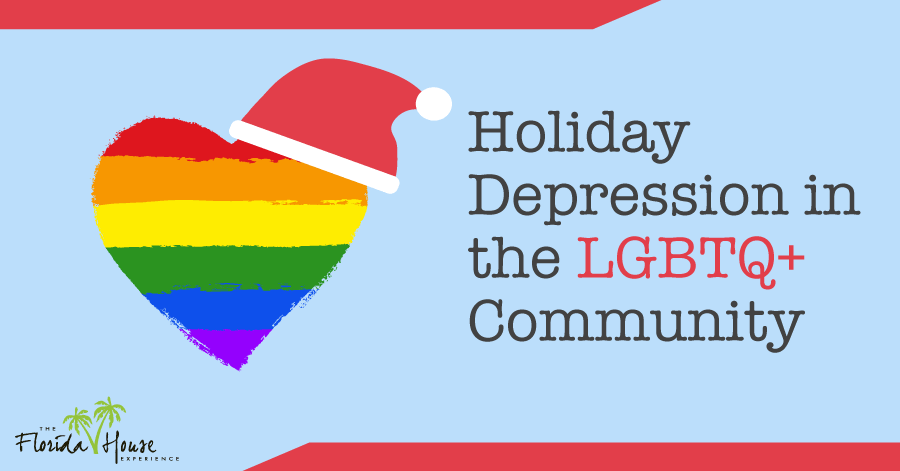
The holidays can be stressful for almost anyone. Hosting family, buying gifts, and preparing for festivities starting in late November and lasting until early January can put a strain on anyone, regardless of the specifics of their identity, but it’s undeniable that the LGBTQ+ community bears the brunt of this stress more than other populations.
The Unique Stresses of an LGBTQ+ Life
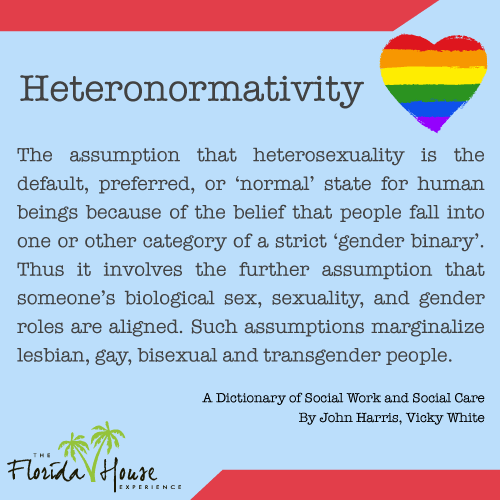 Life for LGBTQ+ people can be difficult. The community is already oppressed by people who believe their lifestyle is anything from inconvenient, to a sin, often on religious grounds. In 2016, a gunman opened fire on an Orlando gay nightclub, killing 49 people, simply on the grounds of being part of a group that performs an “alternate” and misunderstood lifestyle.
Life for LGBTQ+ people can be difficult. The community is already oppressed by people who believe their lifestyle is anything from inconvenient, to a sin, often on religious grounds. In 2016, a gunman opened fire on an Orlando gay nightclub, killing 49 people, simply on the grounds of being part of a group that performs an “alternate” and misunderstood lifestyle.
Even without the violence, the community deals with a stigma. Heteronormativity is a concept that describes the mindset that being straight is normal, and anything else is “deviant”. This idea has long been an implied force in pop culture and other media, re-enforcing the portion of society that has been slow to accept that there are people who live a different, but harmless lifestyle.
Difficult Family Relationships
Heteronormativity has placed a unique load on the backs of people in the LGBTQ+ community. Part of this relates to their experience growing up. Because being straight is considered the “norm”, most children are just assumed to be straight and cisgender (a person who identifies as the gender with their birth sex). This makes it difficult for LGBTQ+ youth to discover themselves and their identity without judgment from the peers and classmates.
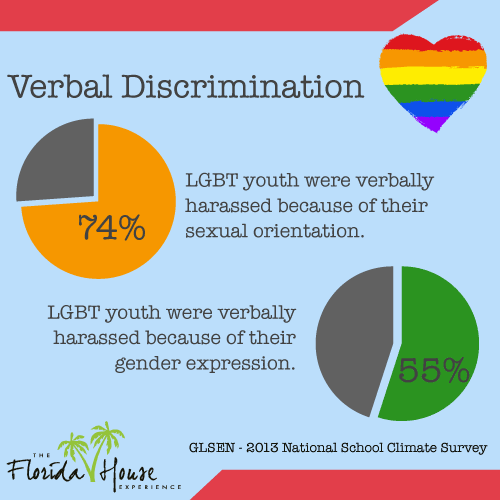
It doesn’t get much better at home. According to The True Colors Fund, LGBTQ+ youth are 120% more likely to be homeless as a result of being kicked out by their family because of their identity or running away from stress. LGBTQ+ youth are also more likely to deal with depression and anxiety.
This is because many families aren’t supportive when their children come out as a different gender or sexual identity. Even when families are trying to be supportive, it can come off as insincere or forced because of their lack of familiarity with the situation. While most people associate family with love and support, many people don’t have this luxury.
The Factors of Holiday Depression
There are a few factors that cause increased stress during the holiday season, no matter what your background or identity:
Normal Stress and Fatigue
Many people travel and/or host family over the holiday season, which can be rewarding, but stressful. Homes are cleaned, flights booked, schedules kept, and more — this can slowly eat away at your psyche during this season.
Financial Stress
There are often significant financial expenditures involved in the holidays as well. Flights are expensive, and prices increase as the holidays get closer. There’s also the stress of buying gifts for friends and family. Unless you have significant disposable income, you might find yourself cutting your budget in other areas to free up room for presents.
Unrealistic Expectations
Many people experience disappoint and even depression over the holidays because the way this time of year has been commercialized. People expect a “perfect” holiday season and it rarely occurs this way. Hazards of normal life (which are rarely shown on TV) arise and throw a wrench into holiday plans.
Added Stresses for LGBTQ+ People
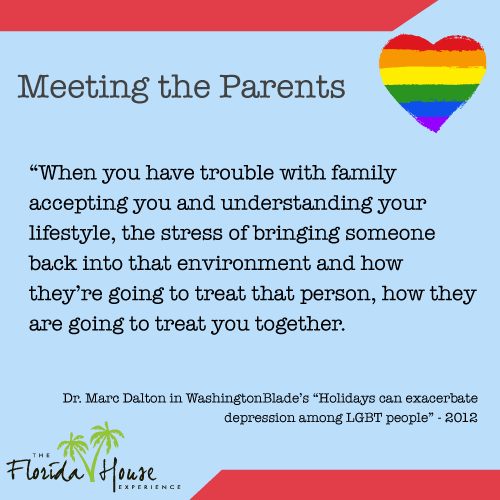
According to Dr. Gregory Jones, a therapist in Washington D.C. in an interview with the Washington Blade:
“The holiday season has a lot of associations with family, togetherness and unfortunately many people in the LGBT community have experienced some family loss, whether it was the loss of relationships, being ostracized or not accepted.”
During the holiday seasons, reminders of the opportunities missed can make people in these groups feel isolated.
According to Jones, it’s not only those who have been rejected by their families that have trouble during the holidays. Often when family members have different political and religious beliefs, LGBTQ+ people will panic at the thought of facing their families, whether the family knows about their identity or not.
What Can You Do to Seek Support?
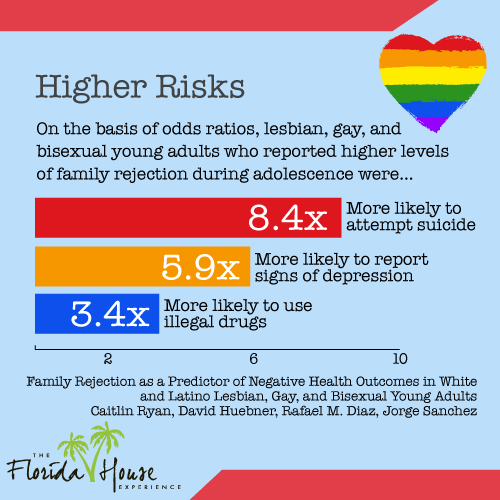
According to Psychology Today, suicide resulting from prolonged depression is the number one killer of gay men and is a serious issue in the LGBTQ+ community as a whole. Finding effective treatment provided without judgment at a proven facility can offer life-saving help for LGBTQ+ struggling with holiday depression.
FHE Health is one of these facilities, capable of treating depression and other mental disorders from this unique point of view. We can help give you the tools to cope with tough interactions (or the lack of interactions) with family during the holiday season.
If you feel it’s too uncomfortable to expose yourself to a potentially tough family gathering, don’t. Make up an excuse in order to provide for your mental health, consider getting together with others in your area experiencing something similar to you.
PFLAG is a group committed to uniting gay, lesbian, transgender, and queer individuals with family members and allies. In the group’s series of tips for getting through holiday get-togethers with family, it emphasizes to stay guarded against judgment, but to keep an open mind yourself. Don’t be too harsh on family members if they make an effort to be open to an unfamiliar lifestyle, and if there’s anyone at a gathering you’re not ready to be “out ” to, make sure everyone else knows to be careful what they say around that person.






